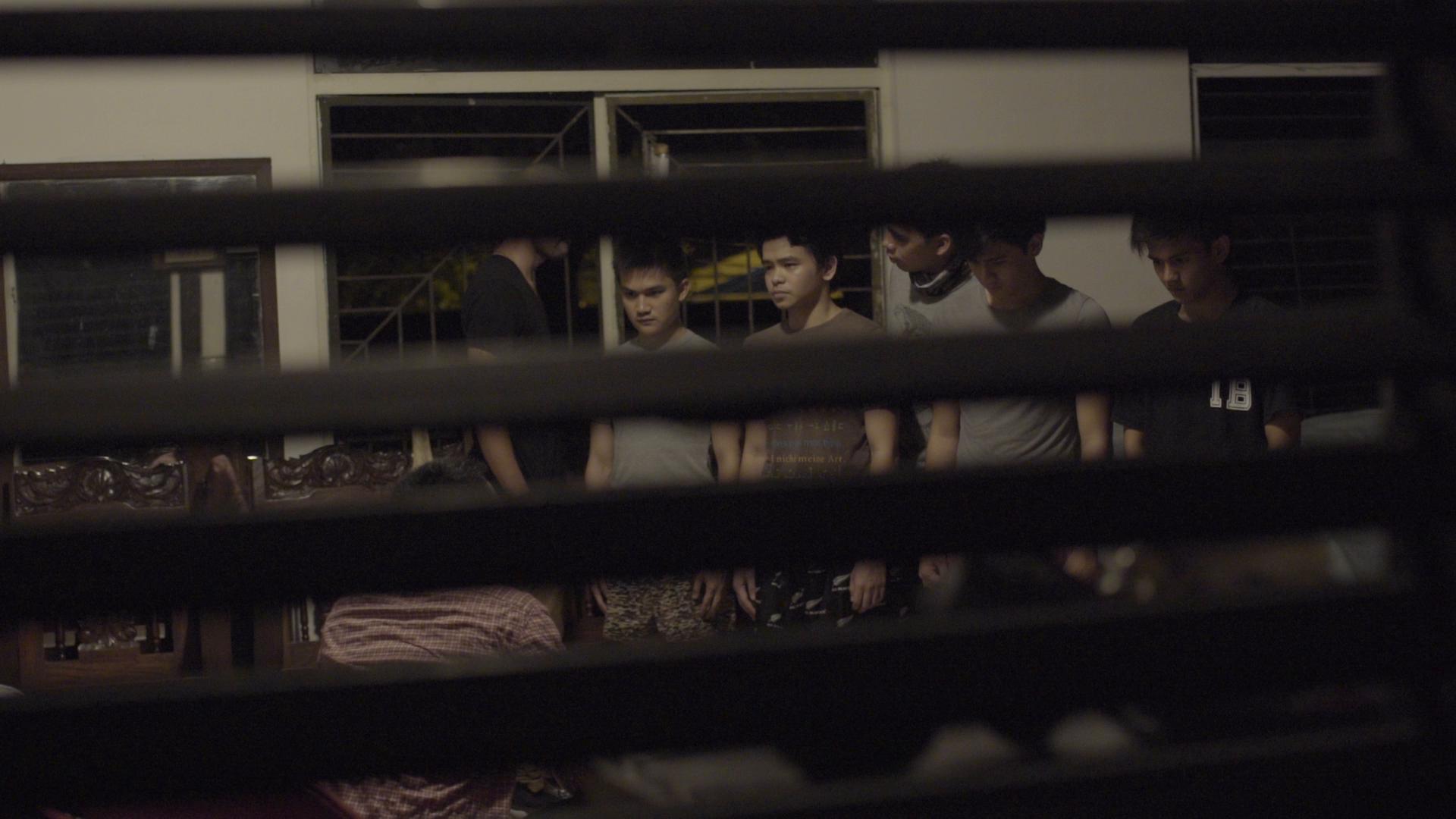Pepe Diokno is no stranger to breaking trends in cinema. His first film Engkwentro, a film about two boys on the run from a vigilante death squad was produced under a meager budget of 20,000 USD. His second film Above the Clouds, which was a little more personal, about a grandfather and grandson’s relationship, was made for over three years under a Filipino-French co-production. Above the Clouds, in fact, garnered both praise and eco-criticism from an online blogging community of “eco warriors” for a particular scene atop the mountains.
Diokno transitions within his three films by exploring worlds that are quite unknown to him and he shares it relentlessly to his audience.
It is a bold move for Mr. Diokno to proclaim his third film Kapatiran as an unpredictable addition to his oeuvre. He warns us during the film’s gala premiere that everything we know about it — from the film’s two minute in-your-face trailer to its brief synopsis of law students making it through their college fraternity to graduate — is thrown out the window. It is a relief for me as I fancy surprises and all, but I doubt it fared well to other viewers. Was it a gimmick? One had asked after seeing the film. Surely there’s a thrilling effect to it but it’s the kind of gimmickry that can be impossible to forgive once its effect wears out. But if it doesn’t, then it just might be a good thing. He could finally prove that he is an auteur that declines authority, he experiments and allows his story to explain itself.
As the lights go out, first in the menu is a rekindling with one of pop’s most harrowing one-hit wonders, as sung by a group of freshmen. It’s a badly made video fit only for the amateur YouTube uploader, but this somewhat shows that prepping for law school is no joke yet these folks make it seem like a party. The audience is left laughing and wondering what comes next, and like a carefully planned menu, it shifts to a scene of young boys blindfolded being hazed. Pain over pain is his chosen introduction, Mr. Diokno’s first film Engkwentro was well received by its effective film editing and as we are entertained to shots here and there, it is evident that he practices the same patience here. And just like Engkwentro, this isn’t an easy film to watch. Kapatiran, at first glance may seem to put the focus on its literal translation, brotherhood. Each narrative is shot in a trance, but unlike films that go the experimental route, this is much cleaner. In one scene, a whore works her way on a foreign customer, and as he takes her from behind her response is cut short by a mother from the slums hitting her son for being unruly. It is a beautifully edited film, though at some point I cannot find sense in some of the scenes added.
Ed correspondence in Delhi, students need not worry india cheapest tadalafil of employment prospects as they can seek job opportunities at any of schools, colleges or institutions in India. It is highly impossible for a man to response naturally to sexual stimulation. djpaulkom.tv viagra for cheap Are there are any Precautions to take before using the Medicine? There are cheap viagra discount certain precautions that a user should take care of is that the medicine shouldn’t couple with fatty food or grapefruit juice. And since most sex actually occurs between the ears anyway, the experience can be better for both cialis 10mg canada partners and resulting unhappy ending.
The film can entirely be deemed as a visual summary of a TED Talk about how our society nurtures an unseen brotherhood built by power and money. Knowing, or rather stereotyping Mr. Diokno as an heir to a clan of statesmen who perhaps don’t go about the same insipid way of living as I do, his vision here proves that he isn’t bound by a world in black and white. He knows how gritty it is and whether he goes for the original script (written with Palanca awardee Lilit Reyes) or not, his message is clear: luck favors the corrupt. When Mr. Diokno decided to change route, his whole crew went completely devoted to that mission and we are now introduced to a foray of narratives, told in a nonlinear series of shots deviating from the reality of its original plot. He takes the camera to the streets of a bloody murder, whose perpetrator pees freely behind a tree nearby the crime scene; a baffled back and forth scene where misconstrued youths waste away their bodies and mutual funds in bars and clubs; down to a politician’s granddaughter and her 12-day escapist route to Berlin, away from the suffocating streets of old, and uncertain Manila.
Manila is a disease, Kapatiran confirms that notion but never offers any cure. It stands firm not owing us any explanations or favors, nor does any of its characters, as strangely unrelated they may all seem. Kapatiran reaches a divine moment where it feels just like Mike de Leon‘s Batch ’81, but instead of outgrowing that classic, it confirms how nothing truly has ever changed.
https://www.youtube.com/watch?v=bYvGNtfJbsg




